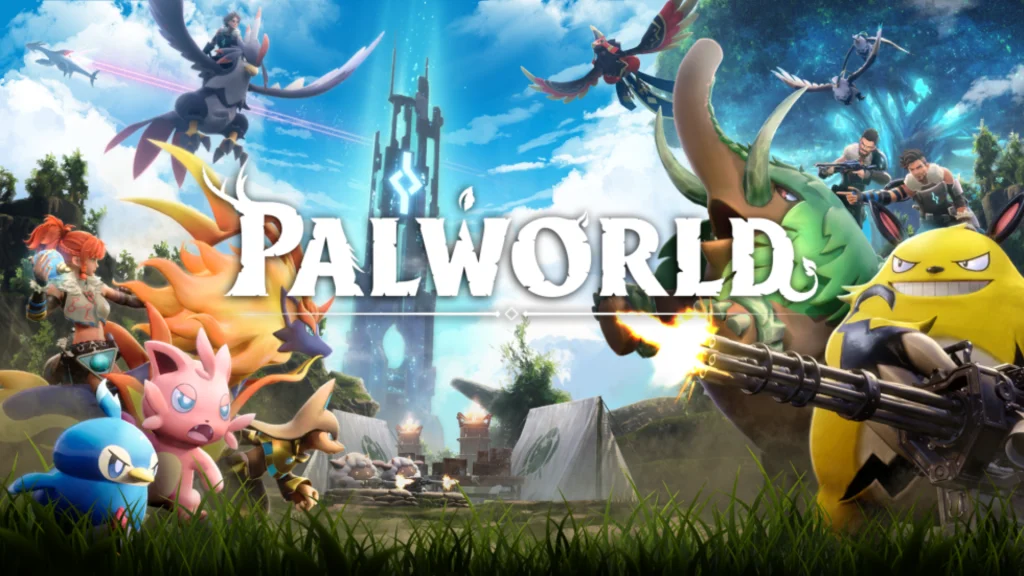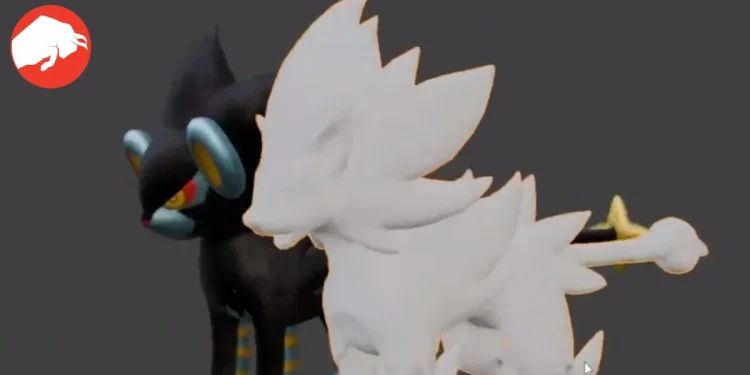The gaming world has witnessed a new sensation with the launch of Palworld, a game by Japanese company Pocketpair. Surpassing expectations, Palworld has sold a staggering 5 million copies within just three days of its release on January 19, 2024. This feat has not only set new records but also sparked a heated debate over its originality and ethical implications in game development.

Record-Breaking Success Amid Allegations
Dubbed as the ‘Pokemon with guns’, Palworld has taken the gaming community by storm, breaking the record previously held by “The Last of Us” as PlayStation’s fastest-selling exclusive game. Despite being embroiled in plagiarism allegations, Palworld’s success is undeniable. The game’s appeal lies in its blend of multiplayer monster-collecting and open-world survival elements, but it’s this very formula that has attracted controversy.
“Palworld is fun, the creatures are cute. But they stole assets. They should not be doing this, it’s not proper dev ethics.” – Nintendo Lawyer (@RaphDeslandes) January 22, 2024
The Heart of the Controversy: Plagiarism Claims
The core of the debate revolves around accusations that Palworld’s creatures bear striking resemblances to the iconic Pokemon. Social media platforms, especially X (formerly Twitter), have been abuzz with comparisons between the two games’ designs and features. These discussions aren’t just about aesthetic similarities; they delve into the finer details of the creatures’ activities and characteristics.
Maybe they’re brothers? #Palworld #Pokemon #Lycanroc model from SV. pic.twitter.com/KnGSozfJGQ
— byo (@byofrog) January 21, 2024
One prominent user, Byo (@byofrog), has uploaded multiple videos showcasing near-identical 3D models between Palworld and Pokemon. This has led to a mixed response from the gaming community, including calls for boycotts and intense discussions about the ethics of game development.
TFW you and your cousin have exactly the same proportions. #Palworld #Pokemon (Luxray model from SV) pic.twitter.com/1nyq7t1k0a
— byo (@byofrog) January 21, 2024
Legal Perspectives and Industry Insights
While the visual similarities are apparent, the legal implications are more complex. VGC’s consultation with AAA game artists revealed that the level of similarity in the 3D models could potentially form the basis of a copyright infringement lawsuit. The artists explained that achieving such close replication usually involves either meticulous copying or using the original model as a foundation.
I understand how others feel about Palworld, and it’s understandable. However, slurs, death threats, and other things of those nature are NOT okay.
Y’all need to CHILL on that. Call them out and provide proof, but don’t wish death on people or use slurs towards them…
— Beelzaboo_bs (@Beelzaboo_bs) January 22, 2024
Despite these concerns, industry experts like Wesley Yin-Poole, UK News Editor for IGN, believe that Palworld may not face legal challenges. The game is perceived as a mashup of familiar elements from various titles rather than a direct rip-off, which might shield it from legal repercussions.
The Human Cost of Controversy
Beyond the legal and ethical debates, the controversy has taken a personal toll on those involved in Palworld’s creation. The game’s CEO, Mizobe, and the community manager, Bucky, have reported receiving death threats since the game’s release. While criticism and debate are part and parcel of the gaming world, the intensity and nature of the backlash have raised concerns about the impact on the developers and artists behind the game.
the palworld vs pokemon discourse is so stupid because if you’re a true Pokemon fan you’d WANT Palworld to be crazy successful so Game Freak will finally get off their thumbs and do something legendary. competition is healthy. it’s a win win for consumers.
— Omni ☕️ (@InfernoOmni) January 22, 2024
“Players have the right to express their criticism, but we request them to refrain from sending death threats and slander.” – CEO Mizobe
Navigating the Future of Gaming Innovation
Palworld’s journey highlights the fine line between inspiration and imitation in the gaming industry. As the debate continues, it serves as a reminder of the challenges faced by developers in creating unique and engaging content while respecting intellectual property rights. The Palworld saga is not just about a game’s success or failure; it’s a reflection of the evolving landscape of creativity, ethics, and legal boundaries in the digital age.









